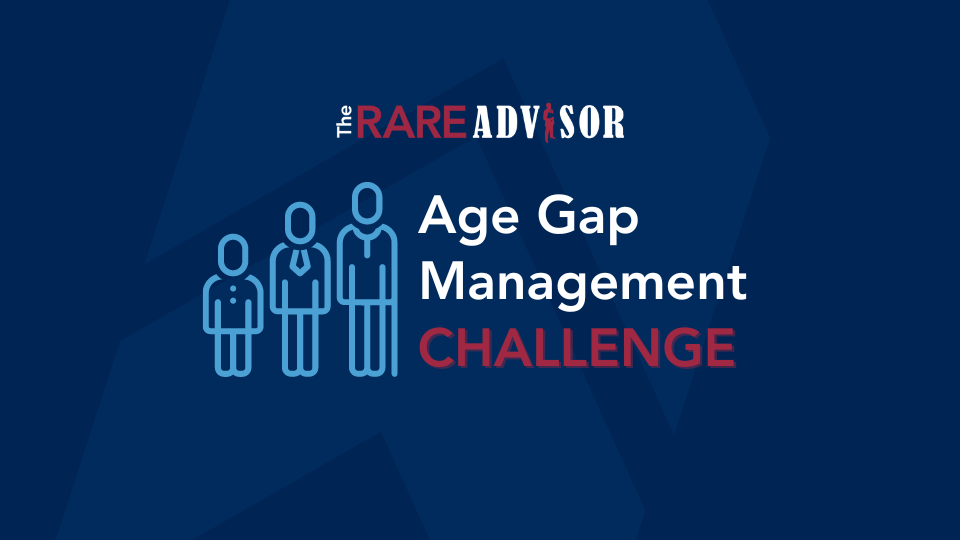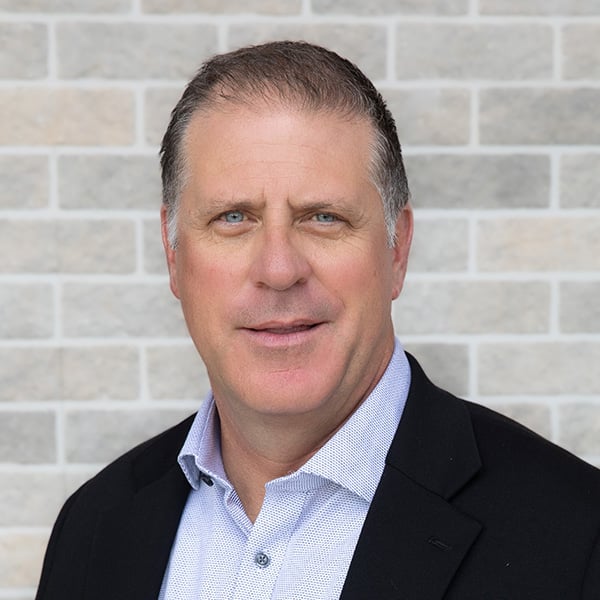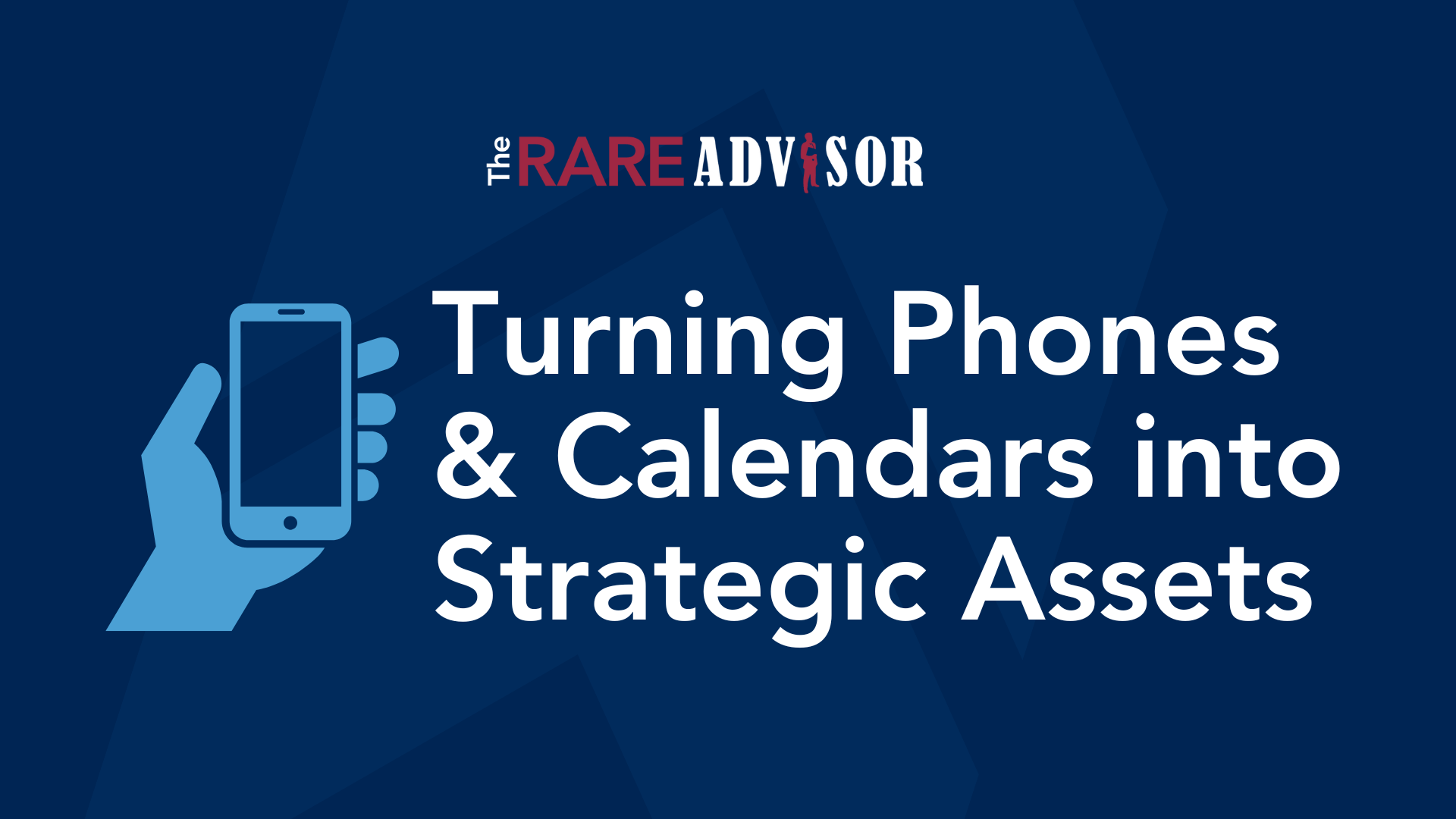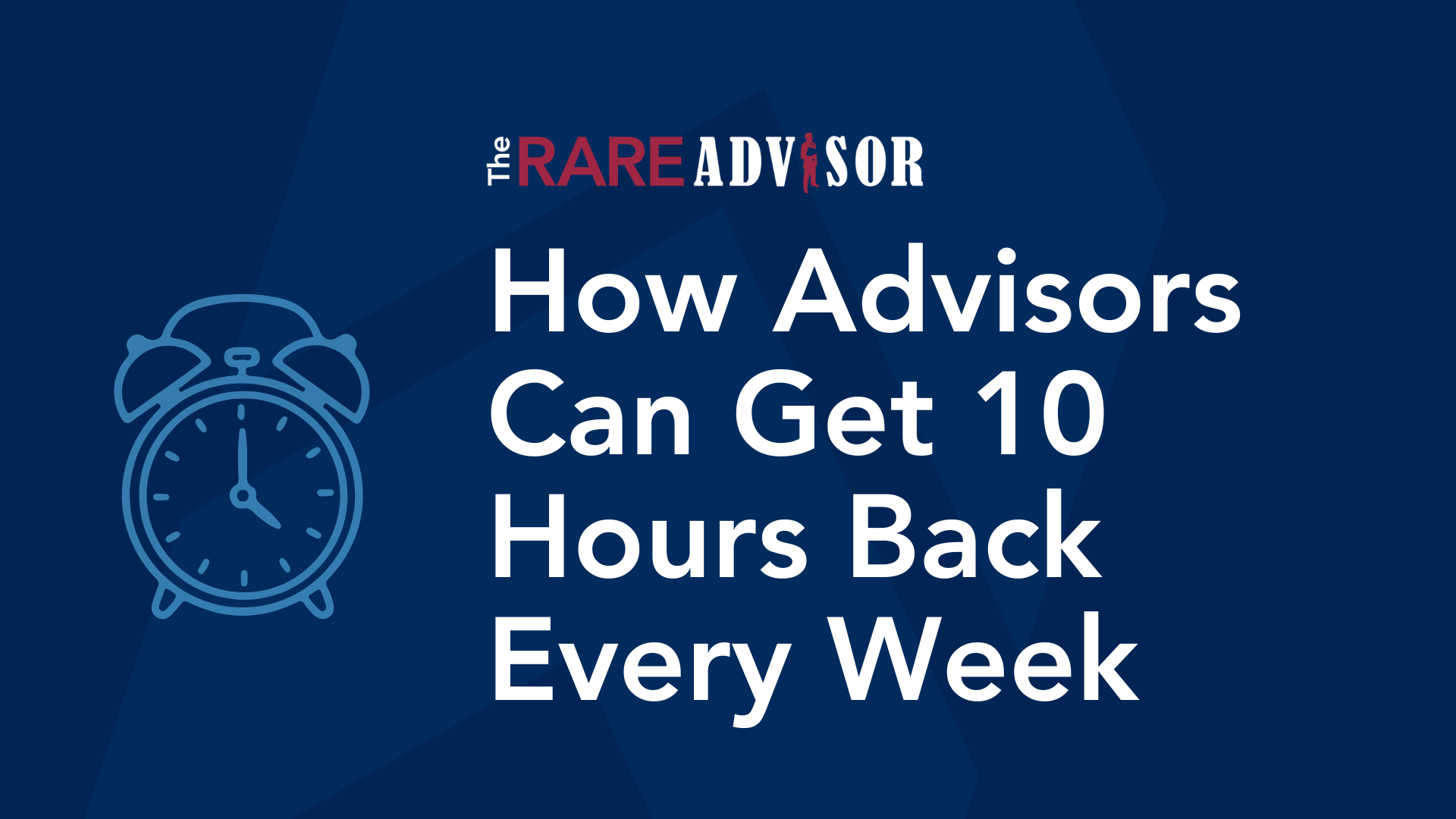The RARE Advisor: Age Gap Management Challenge

You likely have an age gap management challenge in your practice, and you may not even realize it. There is a huge difference in the perspective of how people in different age groups see the world and their core principles, and you need to figure out how to lead people appropriately in running your business.
In a previous discussion, I talk about the Next Gen Advisor Woes & Opportunities and the things that you have to consider when you're identifying either a) who your next gen is going to be, or b) if you are the next gen, making sure that the grooming process is supporting you appropriately so that you actually can hit the ground running and can grow the practice once the advisor ahead of you has departed. Now the challenge that goes beyond that, and that also then gets overlaid with the discussion on managing employees and different age ranges and so on, is the fact that there is a bigger gap in terms of core philosophies of what people believe and what they hold dear than has ever historically been recorded. So if you're looking at Baby Boomers, say age 60 and above, and you're looking at Gen Z, age 30 and below, the difference in how they think and see the world is more dramatic than it's ever been before. I did discuss some of this on the previous Trending Report from more of a market standpoint.
Today, I want to talk to you more at the managerial level, because it is a big issue that is not going away, and it can make those age gaps very difficult to deal with in the workspace. I hate this subject, by the way. I just hate it, because people are people, and every individual is different, and every circumstance is different. So these are huge generalities, but there's no doubt that we've had frustrations amongst age groups; whether it's politically, socially, how we interact with technology, and right on down the line. For the most part, it can create a jovial scenario, something you can joke about, but at its core it can create some problems. There's an article from Axios with some data that you might want to go check out called 'Jarring generation gap: America is divided on values, economics, politics.' And why this matters is, if you're running a successful organization, if you're trying to sell a product or a service, you have to understand these nuances. That's the nature of the discussion here. Some of the different charts in the article comparing Baby Boomers vs. Generation Z show:
- Patriotism: 76% of Baby Boomers believe it is important, while 32% of Gen Z believes it is important.
- Belief in God or Religion: 65% of Baby Boomers believe it is important, while 26% of Gen Z believes it is important.
- Having Children: Over half of Baby Boomers think it is important, while less than a quarter of Gen Z thinks it is important.
- Belief that America is the Best Place to Live: Two thirds of Baby Boomers agree with the statement, while only one third of Gen Z agrees.
- Capitalism vs. Socialism: This is the one that probably scares me more than anything else: capitalism vs. socialism. The majority of older people, by a significant margin, believe that capitalism is a positive thing and it's the way to go. That reverses at the younger ages. So if we're looking under the age of 30, the highest ranking are saying they view socialism positively, whereas older people obviously do not. And then the older generations view capitalism positively, and a smaller percentage (by a dramatic amount) of the younger generation views capitalism positively.
And then when you sum it all up at the end, there is a ranking that's done by the World Happiness Report every year. They track kind of the overall essence of the globe and what parts of the world people are doing well and what parts of the world people are not doing well. Of people over the age of 60, the United States ranks as the 10th happiest country. So of the older people, they believe that they are living in the right place in the United States compared to other populations. Ages 30 and below, given the same ranking opportunities, rank the United States number 62 in terms of happiness across the globe. And if you were to look at the countries that are above the United States ranking on age 60 and above, they're probably the countries you would expect to see there. The countries for the younger generation ranking above the United States have no business ranking higher the United States. They're countries that if you actually move there, you would be miserable. So it is a very different lens, a different perspective that people are seeing things in.
Now, why am I dwelling on this? If you're in your 50s and older, like I am, I want you to believe that there is truly a different view of the world by your younger employees. Doesn't mean it's right, doesn't mean it's wrong. Doesn't mean you have to argue about it. Doesn't mean you have to bring politics or religion into your business. But what it does mean is you have to understand, as a manager, as a leader, that people are not seeing the world, seeing the opportunities, seeing the employment experience, the same way you do. Now, you can decide what you want to do with that. You can carve off a very specific niche, and people have to fit into that. Or you can take a very wide berth and just realize you're going to have a lot of discrepancy, and that can lead to some interesting situations in the building. Or you can find some kind of a happy mixture in the middle. I think transparency is important. I think people have to understand what you're trying to accomplish, why you're trying to accomplish it, and how you're going about doing so, and you need to share those plans openly. That is the one thing I will tell you that will adhere you, in my humble opinion, to the younger generations quicker than anything, is simply being transparent and honest with what it is you're trying to accomplish. Whether they agree or disagree, the fact that you are putting it out there for them will oftentimes get the conversation rolling and get people in agreement. So that's kind of the way we go about it here at USA Financial, but you need to determine what's the best formula for you.
--
The RARE Advisor is a business model supercharged by Recurring And Repeatable Events. With more than thirty years of working with and coaching successful advisors, host Mike Walters (along with other leaders in the industry), discusses what it takes to grow a successful practice. With the aim of helping financial professionals and financial advisors take their business to the next level, Mike Walters shares insights and success stories that make a real impact. Regardless of the stage of your practice, The RARE Advisor will provide thoughtful guidance, suggestions for developing systems and processes that work, and ideas for creating an authentic experience for your clients.
The RARE Advisor is also a podcast! Subscribe today via Apple Podcasts, Google Podcasts, or your preferred podcast listening service for easier on-the-go listening.
Author Info

Mike Walters is the Chief Executive Officer (CEO) of USA Financial, leading the firm since its inception in 1988. Mike is committed to...
Related Posts

Access by Design: Turning Phones and Calendars into Strategic Assets
In this episode of The RARE Advisor, host Aaron Grady and practice management consultant Allan Oehrlein continue their discussion on time allocation by exploring what comes next: operationalizing structure across the entire advisory team. They break down why the phone is the “front door” to the firm and the calendar is the “engine room,” and how elite practices use standardized phone scripts, the strategic power of the word “unavailable,” intentional scheduling rules, and team empowerment to build consistency, capacity, and trust. Aaron and Allan outline how designed access—not unlimited access—creates scalability and a stronger client experience, while reducing reactivity, burnout, and advisor bottlenecks. They also offer practical challenges advisors can implement immediately to redesign their phone and scheduling processes in ways that elevate both team culture and enterprise value.

The Psychology Behind Your CTA: Why Prospects Don’t Click “Book a Call”
In this episode of Financial Advisor Marketing Playbook, Mark Mersman breaks down the real psychological barriers that stop prospects from clicking “book a call” on an advisor’s website—and how small language and design changes can dramatically improve conversions. You’ll learn practical, compliant fixes including softer CTA language, expectation statements, empathy‑based messaging, simplified design, and reassurance techniques that lower emotional friction. If you want a website that encourages prospects to take the first step confidently, this episode delivers actionable guidance advisors can implement immediately.

How Advisors Can Get 10 Hours Back Every Week
In this episode of The RARE Advisor, host Aaron Grady and USA Financial Pareto coach and Practice Management Consultant Allan Oehrlein dive into time allocation as a core lever for advisory success. They unpack the biggest time drains—email, unsolicited calls, and open-door interruptions—and lay out a practical framework for calendar rebalancing that starts with personal time, management time, client appointments, dedicated communications windows, “work on the business” time, and high-impact growth activities. With real-world stories showing how advisors shift from reactive days to structured weeks (and even reclaim Fridays), Aaron and Allan share easy-to-implement tips: color coding calendars, scheduling buffers, daily huddles, and call/appointment protocols. If you’re ready to audit your calendar, define your ideal week, and create structure that truly liberates your practice, this conversation is your next step.

Access by Design: Turning Phones and Calendars into Strategic Assets
In this episode of The RARE Advisor, host Aaron Grady and practice management consultant Allan Oehrlein continue their discussion on time allocation by exploring what comes next: operationalizing structure across the entire advisory team. They break down why the phone is the “front door” to the firm and the calendar is the “engine room,” and how elite practices use standardized phone scripts, the strategic power of the word “unavailable,” intentional scheduling rules, and team empowerment to build consistency, capacity, and trust. Aaron and Allan outline how designed access—not unlimited access—creates scalability and a stronger client experience, while reducing reactivity, burnout, and advisor bottlenecks. They also offer practical challenges advisors can implement immediately to redesign their phone and scheduling processes in ways that elevate both team culture and enterprise value.

The Psychology Behind Your CTA: Why Prospects Don’t Click “Book a Call”
In this episode of Financial Advisor Marketing Playbook, Mark Mersman breaks down the real psychological barriers that stop prospects from clicking “book a call” on an advisor’s website—and how small language and design changes can dramatically improve conversions. You’ll learn practical, compliant fixes including softer CTA language, expectation statements, empathy‑based messaging, simplified design, and reassurance techniques that lower emotional friction. If you want a website that encourages prospects to take the first step confidently, this episode delivers actionable guidance advisors can implement immediately.

How Advisors Can Get 10 Hours Back Every Week
In this episode of The RARE Advisor, host Aaron Grady and USA Financial Pareto coach and Practice Management Consultant Allan Oehrlein dive into time allocation as a core lever for advisory success. They unpack the biggest time drains—email, unsolicited calls, and open-door interruptions—and lay out a practical framework for calendar rebalancing that starts with personal time, management time, client appointments, dedicated communications windows, “work on the business” time, and high-impact growth activities. With real-world stories showing how advisors shift from reactive days to structured weeks (and even reclaim Fridays), Aaron and Allan share easy-to-implement tips: color coding calendars, scheduling buffers, daily huddles, and call/appointment protocols. If you’re ready to audit your calendar, define your ideal week, and create structure that truly liberates your practice, this conversation is your next step.

